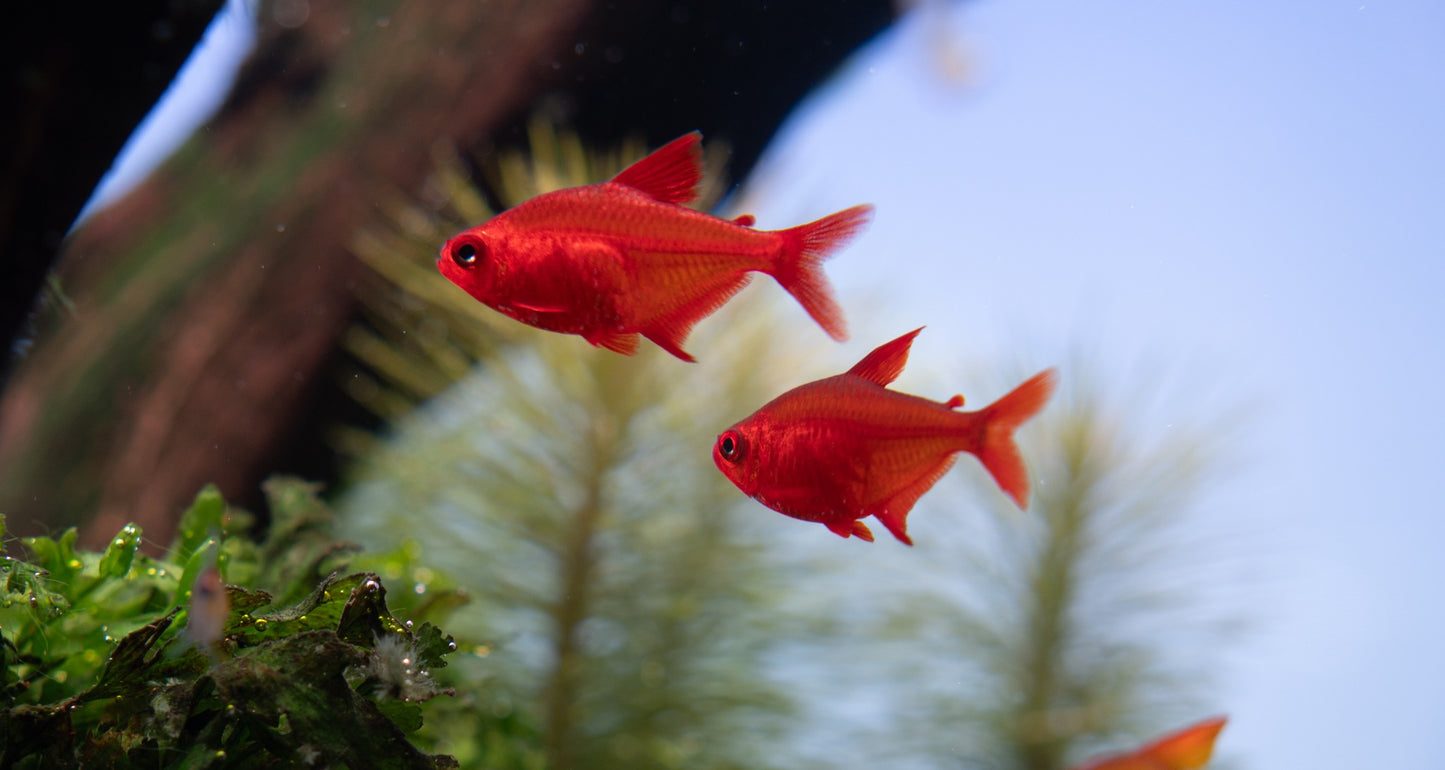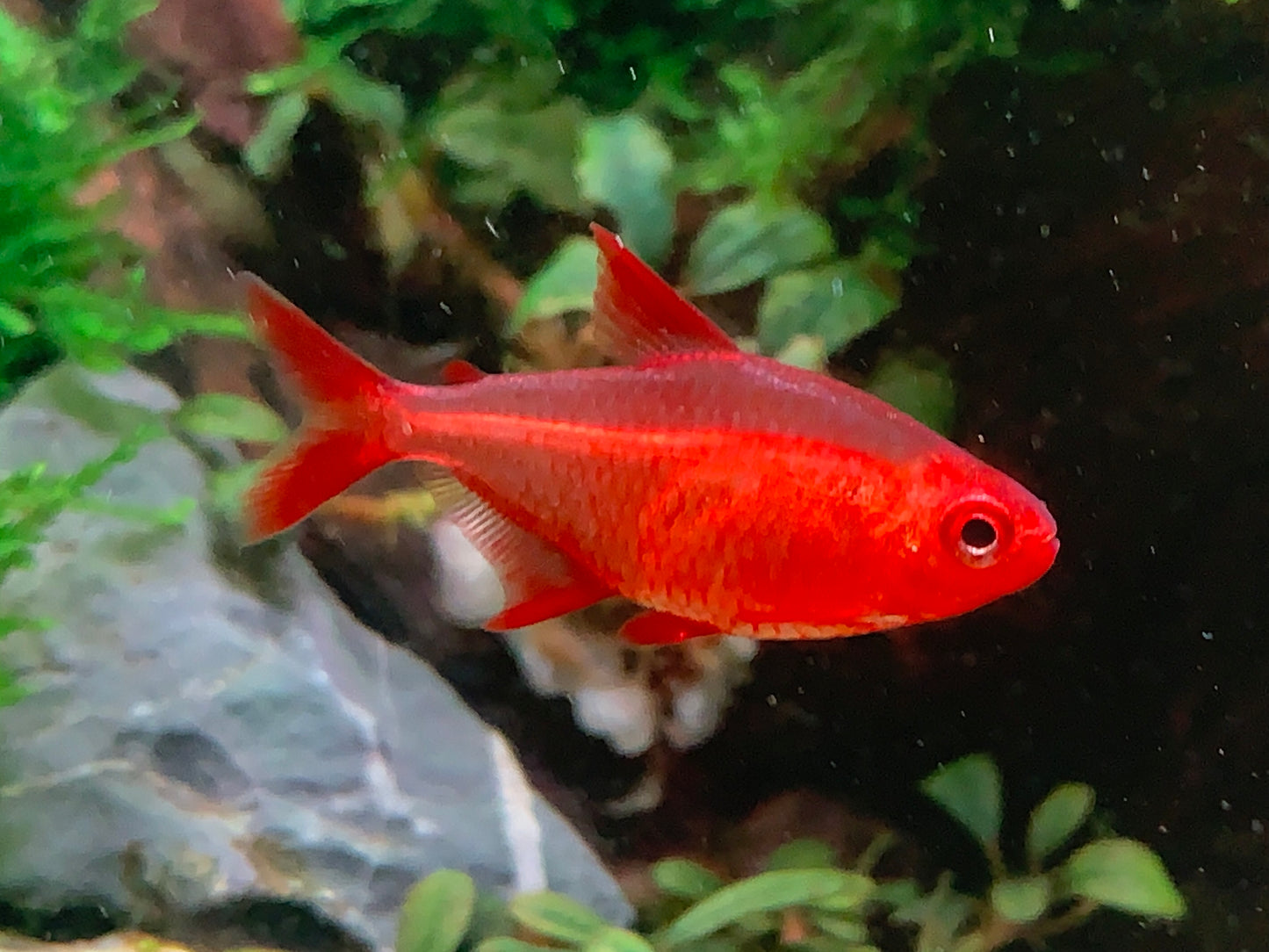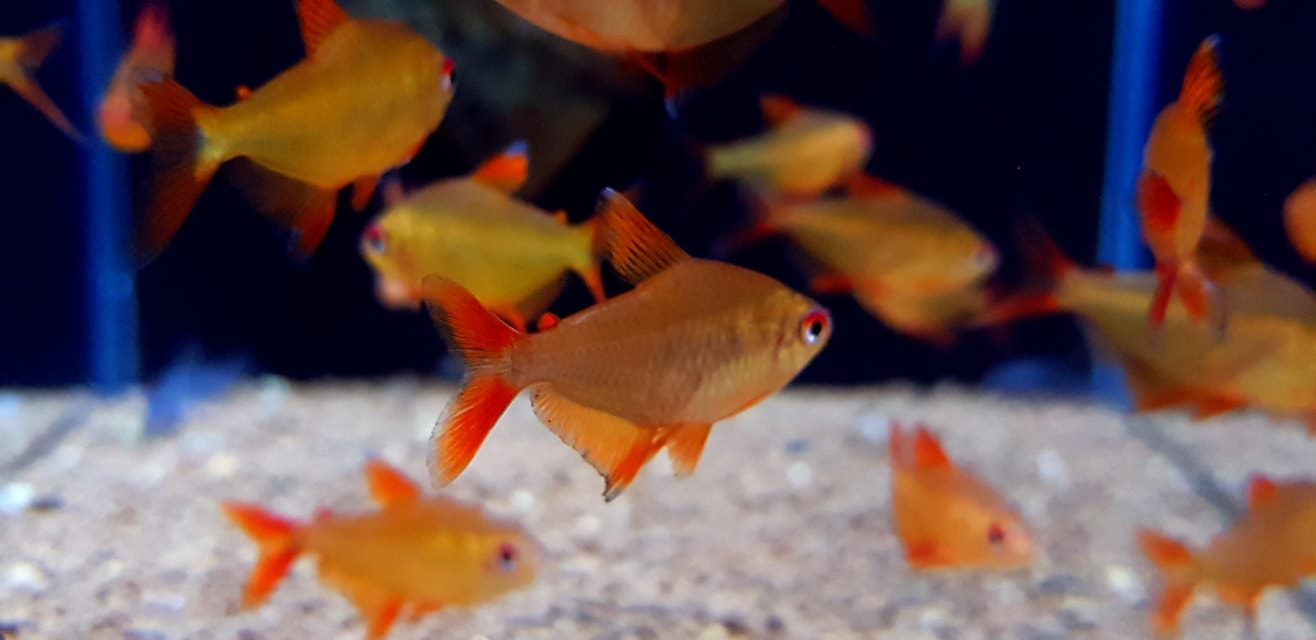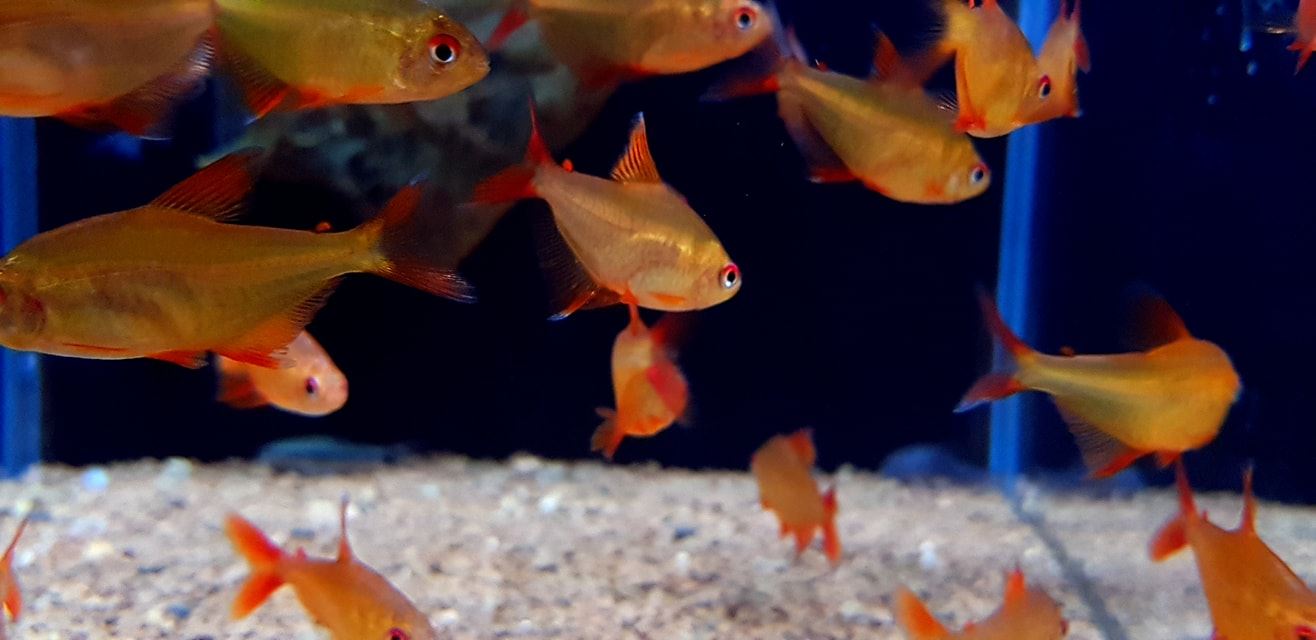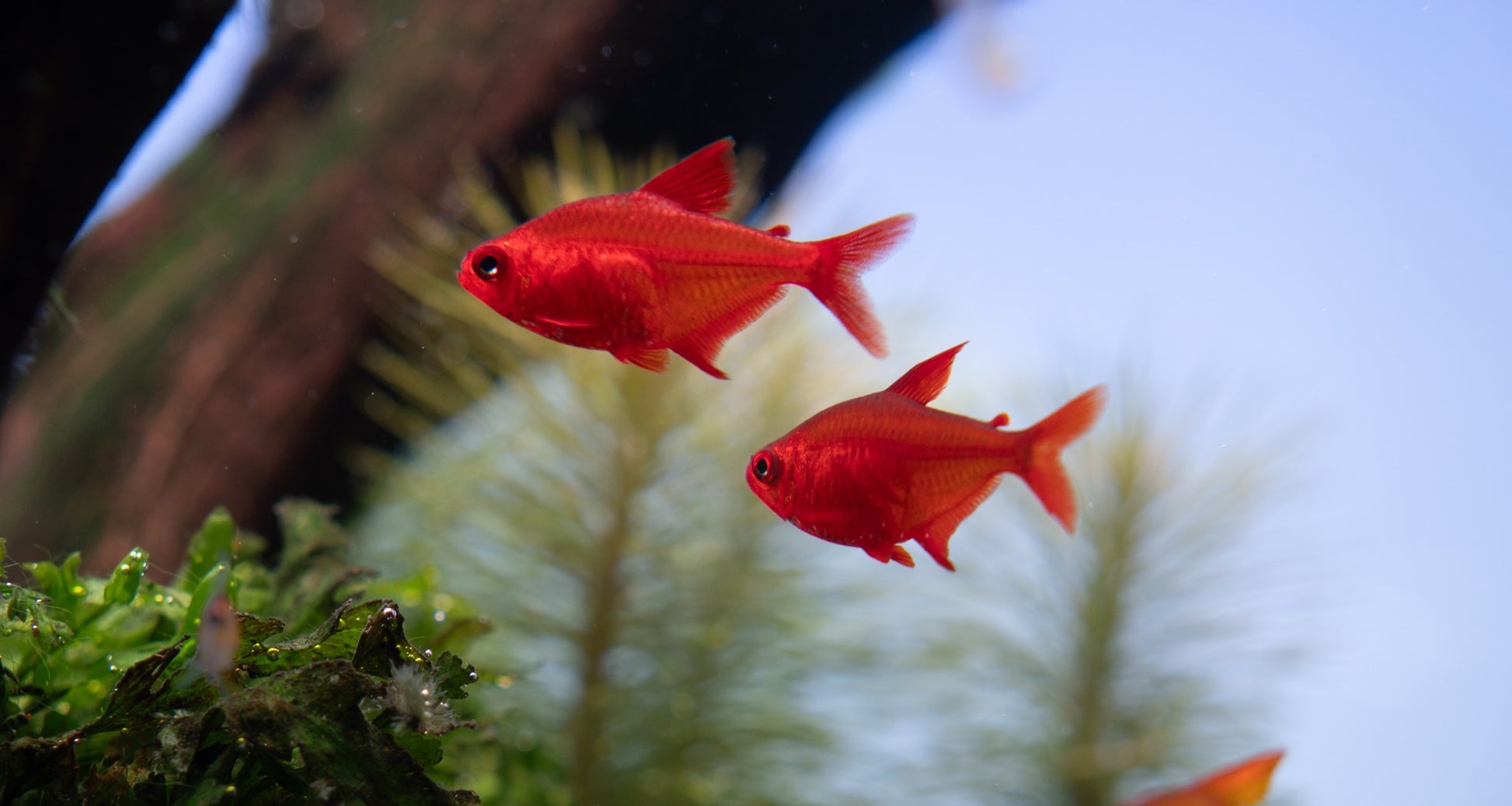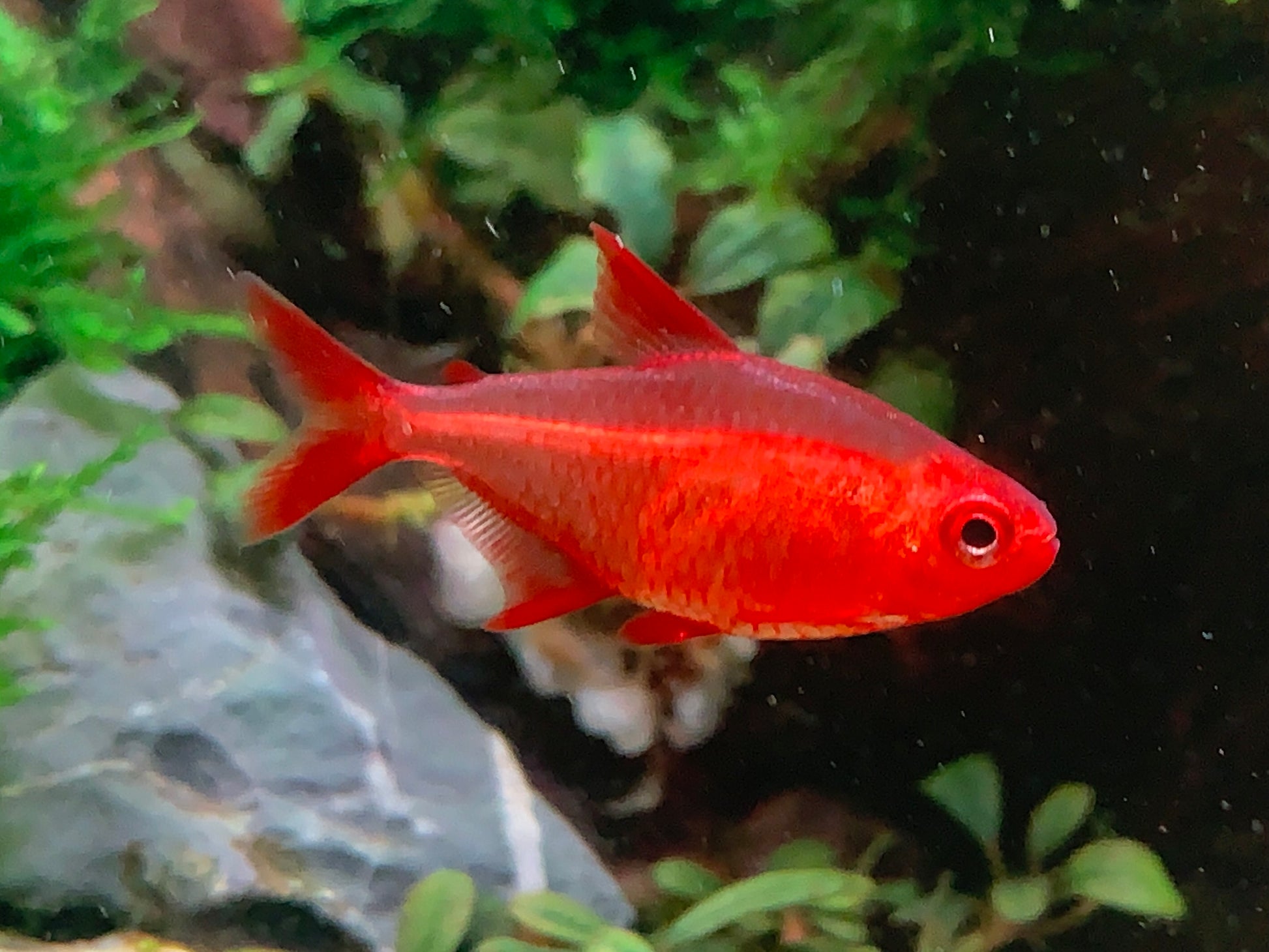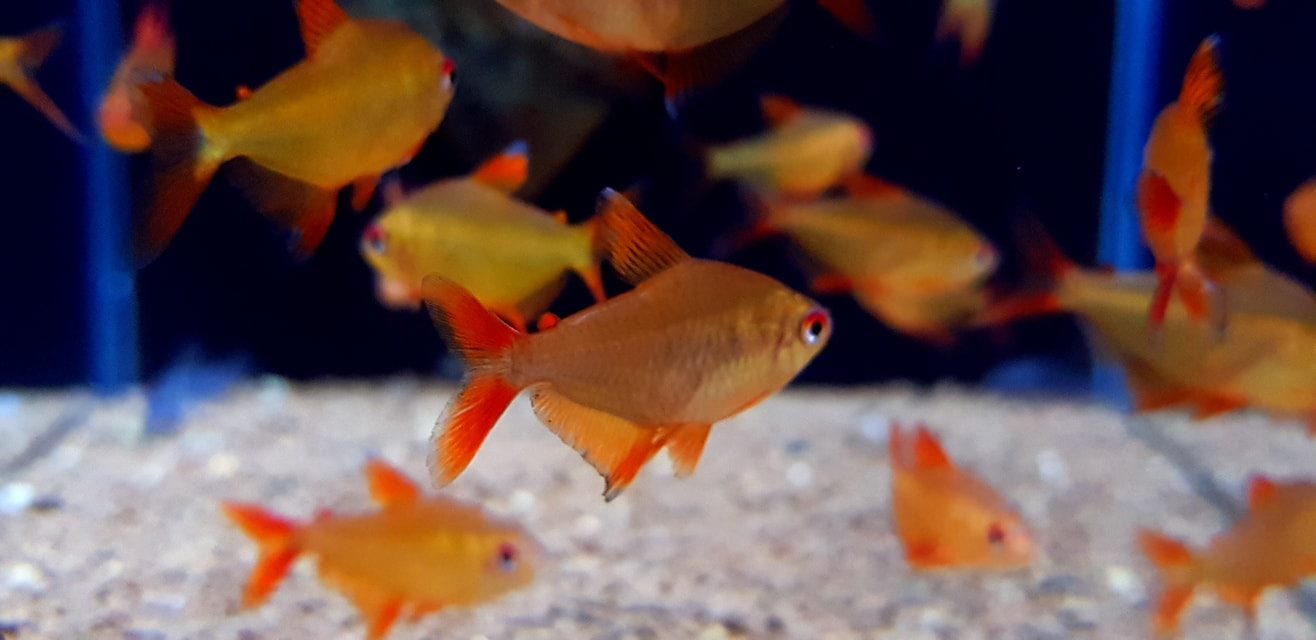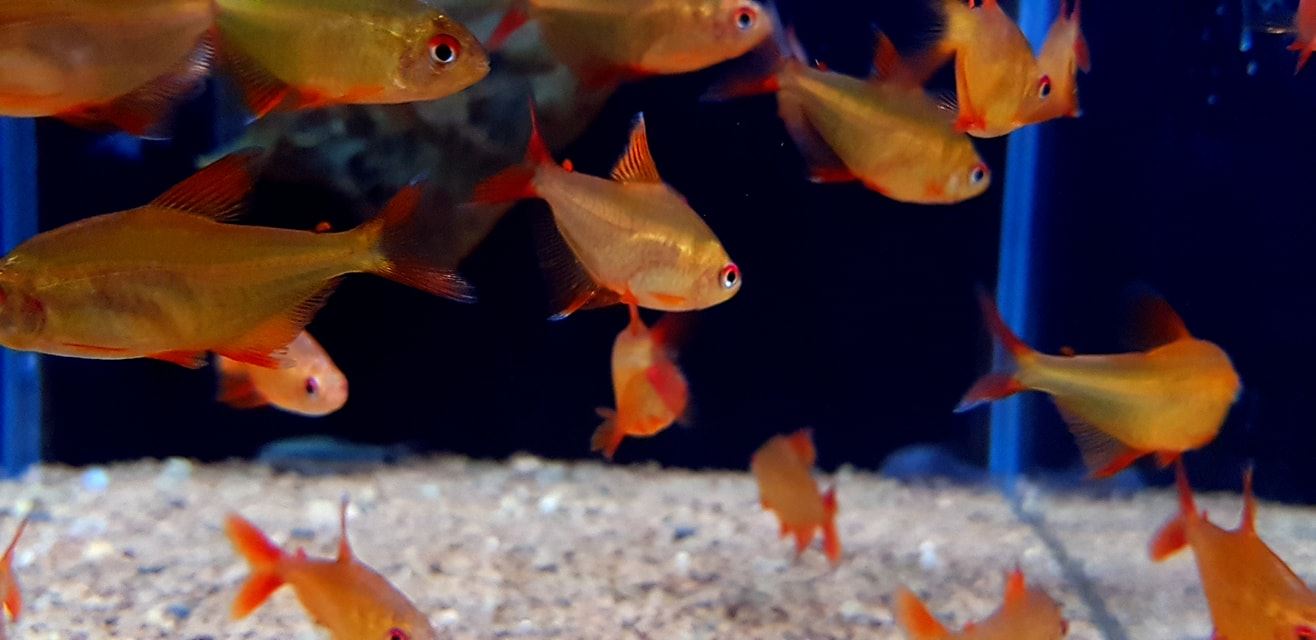1
/
of
4
Aquatic Avenue Online Store
Hyphessobrycon sp “Red Cherry” wild
Hyphessobrycon sp “Red Cherry” wild
Regular price
$16.00 SGD
Regular price
Sale price
$16.00 SGD
Unit price
/
per
Couldn't load pickup availability
Hyphessobrycon muzel (Cherry Red Tetra) (commonly known as Muzel's tetra) is a species of tetra that requires specific care conditions to thrive. Below are some general care tips for keeping this fish in an aquarium:
Tank Setup
-
Tank Size:
- A 20-gallon tank or larger is recommended for a small school of Hyphessobrycon muzel.
-
Water Conditions:
- Temperature: 72–82°F (22–28°C)
- pH: 5.5–7.5 (soft, slightly acidic to neutral water preferred)
- Hardness: 5–12 dGH
-
Filtration:
- Use a gentle filter that does not create strong currents, as they prefer calm waters.
-
Substrate and Decor:
- A dark substrate can help mimic their natural habitat and bring out their colors.
- Add driftwood, leaf litter, and live plants to create hiding spaces and replicate a natural environment.
-
Lighting:
- Moderate lighting is sufficient. Too bright lighting may stress them.
Diet
- Hyphessobrycon muzel is omnivorous. A varied diet is best to ensure health:
- Staple Food: High-quality flake or micro pellet food.
- Live/Frozen Food: Daphnia, brine shrimp, or bloodworms.
- Vegetable Matter: Blanched spinach or spirulina-based food.
Social Behavior
- These are peaceful schooling fish that do best in groups of at least 6–8 individuals.
- Avoid keeping them with aggressive tankmates. Good companions include other peaceful tetras, rasboras, and small catfish species.
Maintenance
- Perform regular water changes (20–30% weekly) to maintain water quality.
- Test water parameters frequently, as they are sensitive to changes in water chemistry.
Breeding
- Breeding in home aquariums is possible but requires effort:
- Separate Breeding Tank: Use a small tank with a mesh or spawning mat at the bottom to protect the eggs from being eaten.
- Conditioning: Feed the pair with live or frozen food to encourage spawning.
- Soft Water: Lower hardness and pH slightly.
- Eggs and Fry: Remove adults after spawning; fry will hatch in 24–36 hours and can be fed infusoria or powdered fry food.
Share
